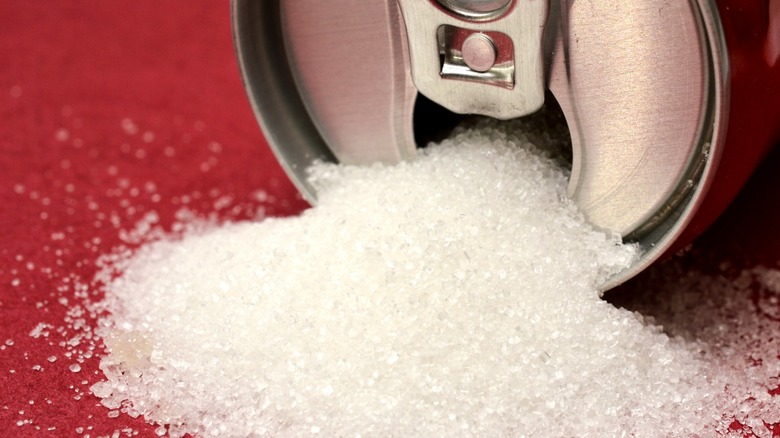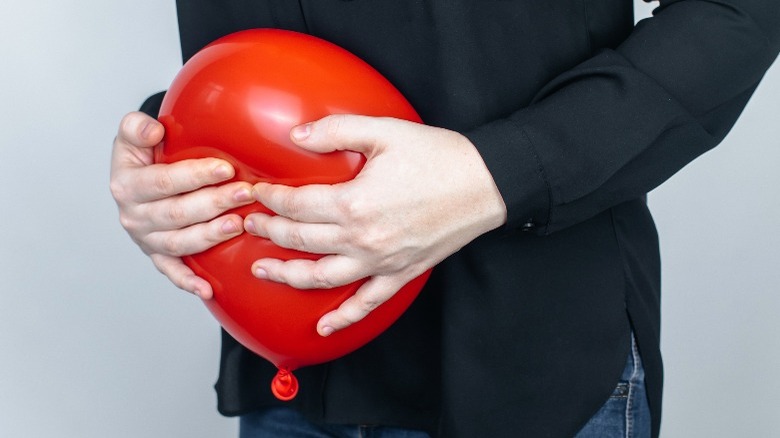Negative Effects Of Sugar Alcohols You Should Be Aware Of, According To A Registered Dietician
If you have a sweet tooth, then you know that sugar is an essential part of your favorite drink or snack. You might go for snacks that are naturally high in sugar, like fruits or milk. On the other hand, you might enjoy foods with processed sugars, like candy. However, not all sugars, or sugar substitutes, are created equal.
On her podcast "Good Instincts", registered dietician Shira Barlow explains the differences between different types of sugar. On one hand, you have nutritive sweeteners, which Barlow says contain calories and raise your levels of blood sugar. Within the category of nutritive sweaters are refined sugars — like processed sugars such as white sugar and corn syrup — and non-refined sugars — like honey or maple syrup. Then there are the non-nutritive sweeteners — like aspartame and sucralose, aka Splenda — which are considered artificial sweeteners and do not raise blood sugar although Barlow does not recommend consuming them. Somewhere in between nutritive and non-nutritive sweeteners, according to Barlow, lies sugar alcohols. Here's everything you need to know about sugar alcohols.
How sugar alcohols impact health
In the podcast episode, Barlow highlights the pros and cons of sugar alcohols. On the plus side, sugar alcohols, "Have some impact on blood sugar, but not much. And because of the chemical structure, they are converted to glucose much more slowly. So they require little to no insulin and they don't cause a sudden spike in blood sugar. For this reason, sugar alcohols like monk fruit tend to pop up in a lot of keto products and sugar-free products that are often marketed for people with diabetes," says Barlow. Notably, the term sugar alcohols is a misnomer — the product does not contain sugar or alcohol and can be extracted from plants or produced chemically.
However, there are some downsides to sugar alcohols, according to Barlow. "Besides some of them being quite processed, anyone who has ever overdone it on them will tell you that they have a laxative effect and they can cause so much bloating."
Barlow goes on to say that xylitol and erythritol are naturally occurring and often thought of as good sources of probiotics. However, if you want to avoid them in general, all sugar alcohols end in '-ol,' so look to avoid that on the shelves.


